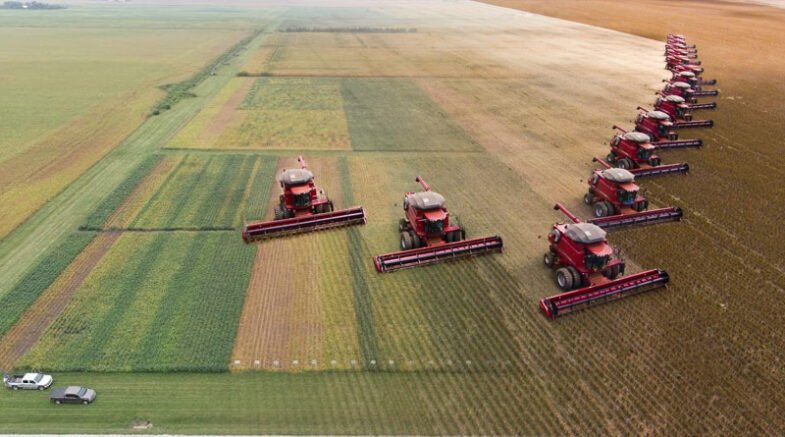Since many years ago, soybean farming has played a significant role in the agricultural sector, and the future of this sector appears bright given current developments and advancements.

The process of raising and developing soybeans as a crop for various purposes, such as food, feed, and biofuel, is known as “soybean farming.” Soybeans are a type of legume and are a significant crop throughout the world.
Since many years ago, soybean farming has played a significant role in the agricultural sector, and the future of this sector appears bright given the current developments and advancements. The following are some of the major trends and innovations influencing how soybean farming will develop in the future:
Sustainable farming methods:
As environmental and sustainability issues become more important, soybean producers are increasingly implementing sustainable methods.
This includes maximizing agricultural yields while reducing inputs like water and fertilizer through the use of precision farming techniques like GPS, variable rate technologies, and data analytics. In order to lessen soil erosion and enhance soil health, more farmers are also investigating alternate crop rotations and intercropping techniques.
Biotechnology:
The sector has undergone a transformation as a result of biotechnology in soybean cultivation. Farmers may now produce soybean varieties with improved yields, a wider range of environmental tolerances, and increased pest and disease resistance due to genetic engineering.
It is also being investigated to generate soybean plants that are more resilient to natural factors like heat and drought using gene editing techniques like CRISPR.
Digital farming:
The use of digital technologies in farming is expanding quickly. Farmers now have a wide range of information that can help them make better choices about planting, harvesting, and resource management, including information on soil moisture levels, weather patterns, and crop health.
Additionally, this information can be utilized to enhance soil fertility, regulate irrigation, and identify and prevent crop diseases.
Organic and Non-GMO Soybean Farming:
Farmers are adapting to the trend of consumers requesting organic and non-GMO soybeans. To accommodate the need for it, many soybean producers are now concentrating on organic and non-GMO varieties, and as a result, the organic and non-GMO soybean market is predicted to rise in the next few years.
Climate Smart Agriculture:
Farmers are looking for solutions to adapt to the effects that climate change is having on their industry. This entails employing conservation tillage techniques to lower greenhouse gas emissions, planting soybean varieties that are more tolerant of climate extremes, and implementing novel irrigation strategies that consume less water.
In conclusion, the numerous innovations and advancements occurring in the business bode well for the future of soybean farming. Soybean farmers can continue to prosper and meet the rising worldwide demand for soybeans by adopting sustainable methods, embracing biotechnology, utilizing digital technologies, and adapting to changing consumer needs.
